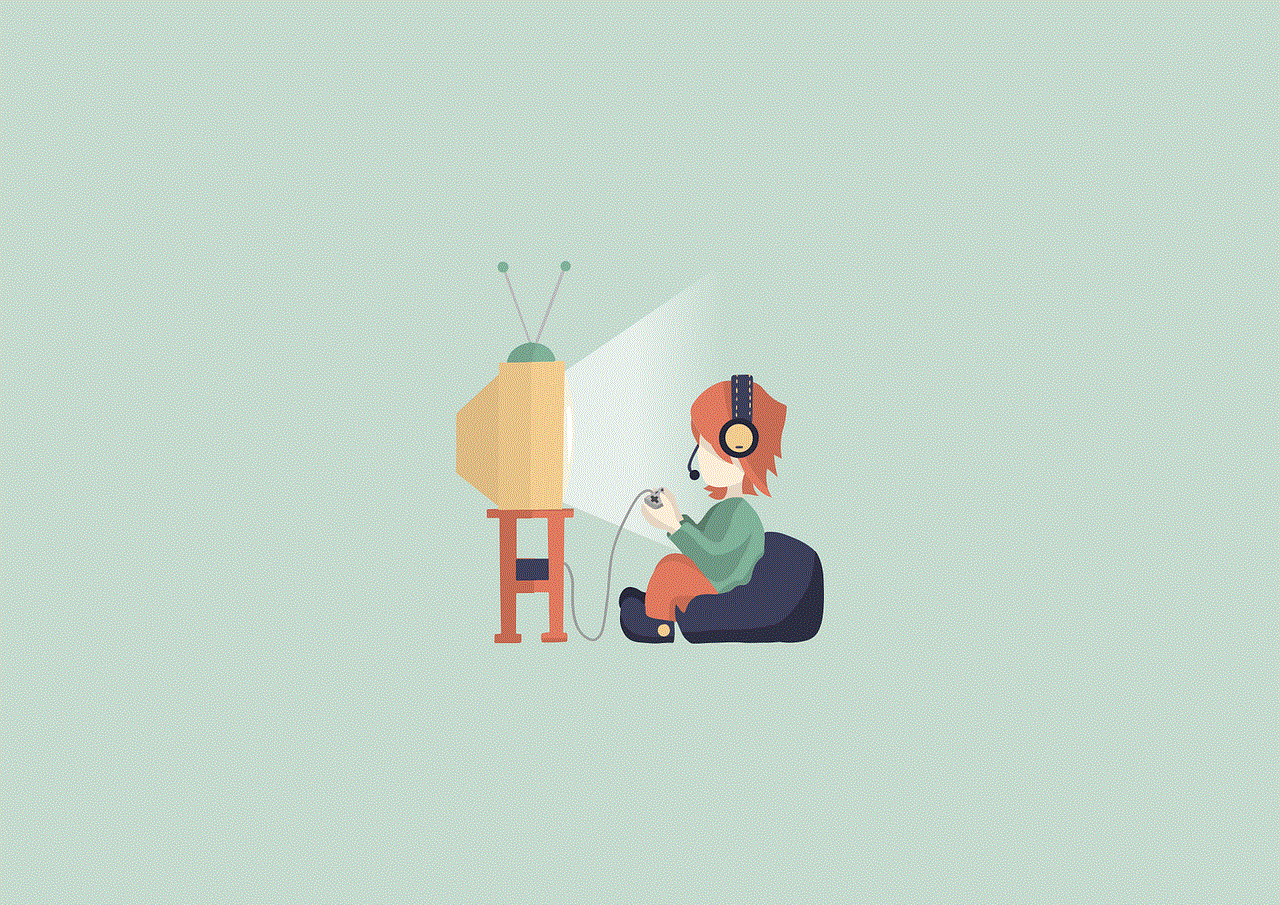best spyware for iphone
In today’s digital age, our smartphones have become an integral part of our daily lives. We use them for communication, entertainment, and even to keep track of our personal and financial information. However, with the increasing use of smartphones, the risk of falling victim to spyware has also risen. Spyware is a type of malware that secretly gathers information about a user’s activities without their knowledge or consent. It can be installed on a device through various means, such as clicking on malicious links, downloading infected apps, or even through physical access to the device.
While spyware can affect any type of smartphone, iPhone users are particularly vulnerable due to the popularity and widespread use of these devices. Therefore, it is crucial for iPhone users to invest in reliable and effective spyware protection. In this article, we will discuss the best spyware for iPhone and how it can protect your device and personal information from malicious attacks.
1. Lookout
Lookout is one of the most popular spyware protection apps for iPhone users. It offers a range of features, including real-time scanning for spyware, malware, and viruses. The app also has a built-in web filter that blocks malicious websites, phishing attempts, and other online threats. One of the standout features of Lookout is its backup and restore feature, which allows users to backup their contacts, photos, and other important data to the cloud. In case of a spyware attack, users can easily restore their data from the cloud without losing any information.
2. Avira Mobile Security
Avira Mobile Security is another excellent option for spyware protection on iPhones. This app offers real-time scanning and protection against spyware, malware, and other online threats. It also has a privacy advisor feature that analyzes the apps on your device and provides a risk assessment based on their permissions and data usage. Additionally, Avira Mobile Security offers a VPN service, which encrypts your internet traffic and protects your online activities from prying eyes.
3. Norton Mobile Security
Norton Mobile Security is a top-rated spyware protection app for iPhone users. It offers comprehensive protection against spyware, malware, and other online threats. The app also has a Wi-Fi security feature that alerts users when they connect to an unsecured Wi-Fi network. It also has a web protection feature that blocks malicious websites and phishing attempts. Norton Mobile Security also offers a password manager, which securely stores your passwords and sensitive information.
4. Kaspersky Mobile Antivirus
Kaspersky Mobile Antivirus is a trusted name in the world of cybersecurity, and its mobile app is no exception. It offers real-time scanning and protection against spyware, malware, and other online threats. The app also has a call blocker feature that blocks unwanted calls and texts. One of the standout features of Kaspersky Mobile Antivirus is its anti-phishing feature, which blocks fake websites and protects users from falling for phishing scams.
5. McAfee Mobile Security
McAfee Mobile Security is another popular choice for spyware protection on iPhones. It offers real-time scanning and protection against spyware, malware, and other online threats. The app also has a media vault feature that allows users to securely store their photos and videos. Additionally, McAfee Mobile Security offers a feature called Guest Mode, which allows users to protect their privacy when lending their device to others.
6. Trend Micro Mobile Security
Trend Micro Mobile Security is a comprehensive spyware protection app for iPhone users. It offers real-time scanning and protection against spyware, malware, and other online threats. The app also has a social media privacy feature that scans your social media accounts for privacy risks and provides tips on how to secure them. Additionally, Trend Micro Mobile Security offers a feature called Safe Surfing, which blocks malicious websites and protects users from online threats while browsing the internet.
7. Malwarebytes Mobile Security
Malwarebytes Mobile Security is a lightweight and easy-to-use spyware protection app for iPhone users. It offers real-time scanning and protection against spyware, malware, and other online threats. The app also has a privacy audit feature that scans your device for any apps that may be accessing your personal information without your knowledge. Additionally, Malwarebytes Mobile Security offers a feature called Safe Browsing, which blocks malicious websites and protects users from online threats while browsing the internet.
8. Webroot SecureWeb Browser
Webroot SecureWeb Browser is a secure browser app for iPhone users. It offers real-time protection against malicious websites, phishing attempts, and other online threats. The app also has a password manager feature that securely stores your passwords and sensitive information. Additionally, Webroot SecureWeb Browser offers a feature called Safe Search, which blocks malicious search results and protects users from online threats while using search engines.
9. F-Secure Safe
F-Secure Safe is a comprehensive security app for iPhone users. It offers real-time scanning and protection against spyware, malware, and other online threats. The app also has a feature called Banking Protection, which protects users’ financial information while making online transactions. Additionally, F-Secure Safe offers a feature called Finder, which allows users to locate their lost or stolen device.



10. ESET Mobile Security
ESET Mobile Security is another reliable option for spyware protection on iPhones. It offers real-time scanning and protection against spyware, malware, and other online threats. The app also has a feature called Anti-Theft, which allows users to remotely lock and wipe their device in case of theft or loss. Additionally, ESET Mobile Security offers a feature called Parental Control, which allows parents to monitor and control their children’s online activities.
In conclusion, spyware is a serious threat to the security and privacy of iPhone users. Therefore, investing in a reliable and effective spyware protection app is crucial for the safety of your device and personal information. The above-mentioned apps are some of the best spyware protection options for iPhone users, and each offers unique features to keep your device and data safe from malicious attacks. Make sure to regularly update your device’s operating system and apps, use strong and unique passwords, and be cautious while clicking on links or downloading apps to further enhance your device’s security against spyware.
i meaning slang
Slang is a form of language that is informal, often used among friends or in specific social groups. It is characterized by its ever-evolving nature and the use of unconventional words and phrases that may not be found in standard dictionaries. Slang is considered to be a reflection of culture, as it reflects the attitudes, beliefs, and values of a particular group of people. One of the most interesting and diverse forms of slang can be found in the Hawaiian language, specifically the word “pa`i ma`i.”
The Hawaiian language, also known as ʻŌlelo Hawaiʻi, is the indigenous language of the Hawaiian Islands. It is a Polynesian language that has been passed down through generations and has evolved over time. The word “pa`i ma`i” is a combination of two Hawaiian words – “pa`i” meaning sickness or illness and “ma`i” meaning to hit or strike. When used together, “pa`i ma`i” takes on a whole new meaning that is unique to Hawaiian slang.
In Hawaiian slang, “pa`i ma`i” refers to a person who is constantly sick or always has something wrong with them. It is often used in a playful or joking manner, but can also be used to describe someone who is genuinely ill. The term can also be used to describe a hypochondriac, someone who is overly anxious about their health and constantly worries about being sick.
But where did this slang term originate from? Some say it dates back to ancient Hawaiian times when people believed that sickness was caused by being struck by a spiritual force. This belief was rooted in the concept of mana, which is the spiritual energy or power that is present in all living things. It was believed that if a person’s mana was weak, they would be more susceptible to sickness and disease. Therefore, someone who was constantly sick was seen as having weak mana and being easily “struck” by illness.
Another theory suggests that the term “pa`i ma`i” originated from the Hawaiian word “pa`i” which means to clap or applaud. In this context, “pa`i ma`i” would refer to someone who is always seeking attention and sympathy for their supposed illnesses. This theory is supported by the fact that in Hawaiian culture, it is considered impolite to clap or applaud for someone who is sick, as it is believed to bring negative energy and prolong their illness.
In modern Hawaiian culture, “pa`i ma`i” has become a popular term among young people, especially in the surfing and skateboarding communities. It is often used as a slang term for someone who is constantly injured or taking risks that result in physical harm. For example, if someone falls off their skateboard and gets hurt, their friends may jokingly say, “Oh, you’re such a pa`i ma`i!” This use of the term has evolved from its original meaning but still carries the same connotation of being constantly “struck” by something negative.
Interestingly, the term “pa`i ma`i” has also made its way into the world of music. In Hawaiian reggae artist J Boog’s song “Let’s Do It Again,” he sings, “I’ve got this pa`i ma`i, I’m feeling good tonight.” In this context, the term is used to describe a feeling of sickness or weakness that is overcome by a positive and carefree attitude. This use of the term aligns with the idea of mana and the power of positive energy to overcome illness.
Aside from its use in slang, “pa`i ma`i” also has a deeper cultural meaning in Hawaiian society. It is often used in traditional healing practices, such as lomilomi massage, to release negative energy and promote physical and spiritual well-being. In this context, “pa`i ma`i” refers to the idea of being struck by negative forces or energies that need to be released. This concept of healing aligns with the traditional Hawaiian belief of balance and harmony within the mind, body, and spirit.



In the modern world, the use of slang, including “pa`i ma`i,” has become more prevalent with the rise of social media and the internet. Hawaiian slang terms have made their way into popular culture, with people from all over the world incorporating them into their vocabulary. This has led to a fusion of traditional and modern meanings of words, creating a unique and ever-changing language.
In conclusion, “pa`i ma`i” is a slang term in the Hawaiian language that has a rich history and cultural significance. It has evolved from its traditional meaning of being “struck” by sickness to a more modern use in pop culture. The term reflects the unique and vibrant culture of Hawaii and its people, and serves as a reminder of the importance of balance and harmony in our lives. So the next time you hear someone being called a pa`i ma`i, remember that there is more to it than just a simple slang term – it carries with it a piece of Hawaiian history and culture.
(sic) usage
In today’s digital age, the usage of technology has become an integral part of our daily lives. From smartphones to laptops, we are constantly surrounded by devices that make our lives easier and more efficient. However, with the increasing dependence on technology, there has also been a rise in concerns about its overuse and its impact on society. One such concern is the usage of technology, which has become a hotly debated topic in recent years. In this article, we will delve deeper into this topic and explore the various aspects of technology usage and its effects on individuals and society as a whole.
To begin with, let us first understand what we mean by ‘technology usage’. It refers to the amount of time an individual spends using technology, whether it is for work or leisure. This includes activities such as browsing the internet, using social media, playing video games, and watching television. With the advent of smartphones and the internet, technology usage has grown exponentially, and it has become an essential part of our daily routine. However, this has also led to concerns about its impact on our physical, mental, and social well-being.
One of the major concerns about technology usage is its effect on our physical health. The constant use of devices such as smartphones and laptops has resulted in a sedentary lifestyle for many individuals. This lack of physical activity has led to various health problems such as obesity, back pain, and eye strain. Moreover, the blue light emitted from screens has been linked to sleep disturbances and eye fatigue. It is estimated that an average adult spends around 11 hours a day using technology, which can have a detrimental effect on their physical health in the long run.
Apart from physical health, technology usage has also been linked to mental health issues. The constant bombardment of information and the need to stay connected at all times has led to a rise in anxiety and stress levels among individuals. Social media, in particular, has been found to have a negative impact on mental health, with studies showing a correlation between excessive social media usage and feelings of low self-esteem, depression, and loneliness. Moreover, the constant need to compare one’s life with others on social media platforms can lead to feelings of inadequacy and can have a damaging effect on one’s mental well-being.
Another aspect of technology usage that has raised concerns is its effect on social interactions. With the rise of social media, individuals are spending more time online and less time interacting with people in person. This has resulted in a decline in face-to-face communication and has led to a deterioration of social skills. The constant use of technology has also led to a decrease in the quality of relationships as individuals are more focused on their devices rather than engaging with those around them. This can have a significant impact on the social fabric of society, leading to a lack of empathy and understanding among individuals.
Moreover, the constant use of technology has also raised concerns about its impact on productivity and work-life balance. While technology has made our lives more convenient, it has also blurred the lines between work and personal life. With the ability to be connected 24/7, individuals are finding it difficult to switch off from work, leading to burnout and fatigue. The pressure to constantly be available and respond to work emails and messages has also resulted in a decline in the quality of personal time, leading to a decrease in overall well-being.
The overuse of technology has also had a significant impact on the younger generation. With children and teenagers being exposed to technology at a young age, there has been a rise in concerns about the effects of excessive screen time on their development. Studies have shown that excessive screen time can lead to a decline in cognitive abilities and can also have a negative impact on their social skills. Moreover, the constant exposure to technology has also made children more vulnerable to cyberbullying and online predators, posing a threat to their safety and well-being.
While there are numerous concerns about the overuse of technology, it is important to acknowledge the positive aspects of technology usage as well. Technology has made our lives more convenient, allowing us to stay connected with loved ones, access information, and work remotely. It has also revolutionized the education sector, making learning more accessible and interactive. Moreover, technology has played a crucial role in the development of various industries, leading to economic growth and job creation.



To address the concerns about technology usage, it is essential to find a balance between its use and its overuse. This can be achieved through self-regulation and setting boundaries. Individuals can limit their screen time, take breaks, and engage in physical activities to reduce the adverse effects of technology on their health. Employers can also play a vital role in promoting a healthy work-life balance by setting clear guidelines and encouraging employees to disconnect from work during non-working hours. Schools can also educate students about the responsible use of technology and the importance of maintaining a balance between online and offline activities.
In conclusion, the usage of technology has become an inseparable part of our lives, and it has undoubtedly brought numerous benefits. However, its overuse has raised concerns about its impact on our physical and mental health, social interactions, productivity, and the younger generation. It is imperative that we recognize the potential harms of excessive technology usage and take steps to regulate and balance its use to ensure a healthy and sustainable relationship with technology.